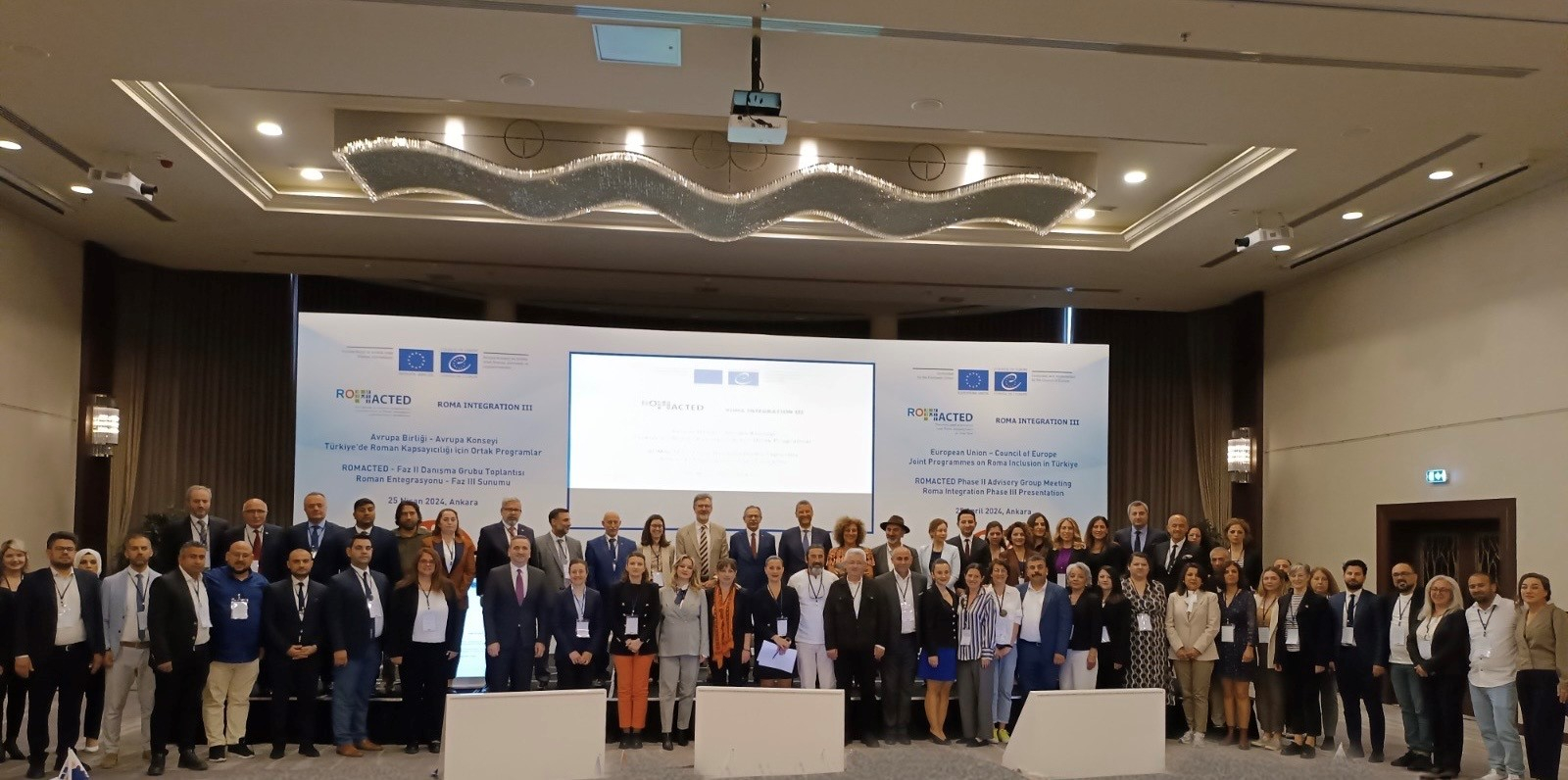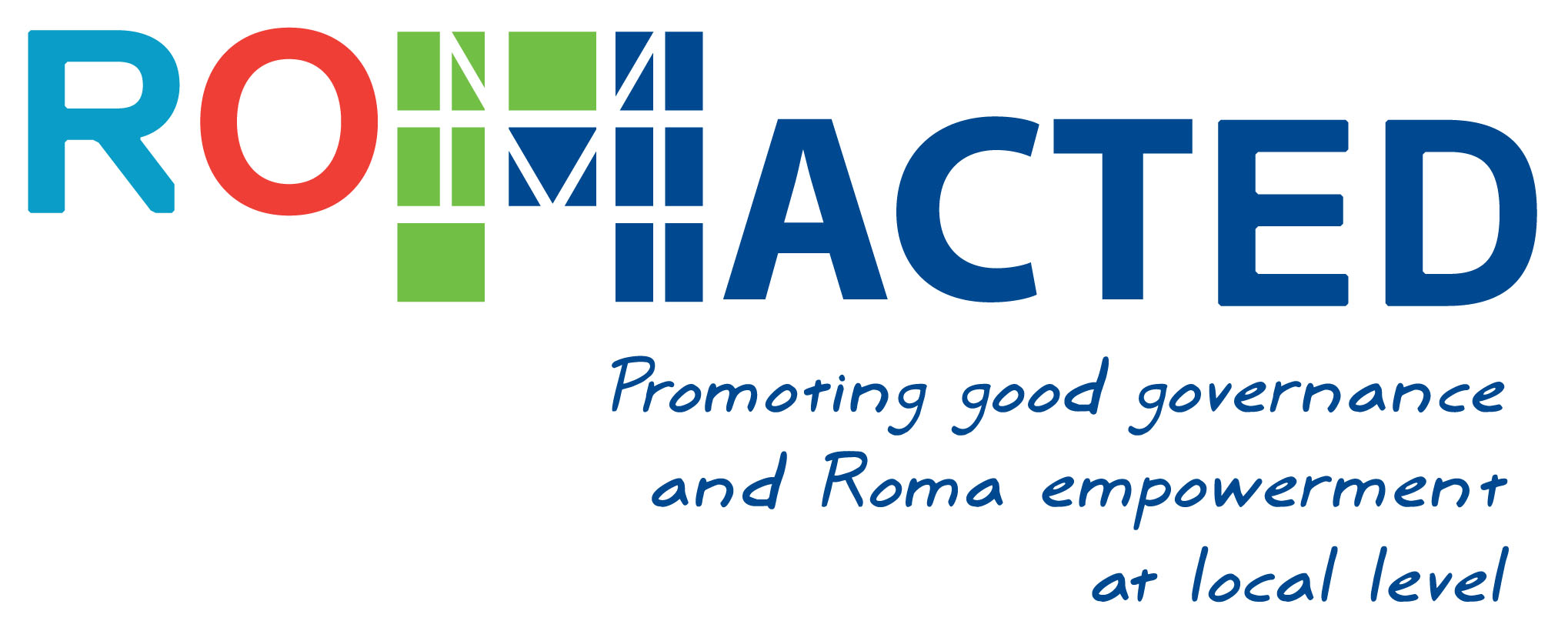Within the framework of the European Union - Council of Europe joint regional programmes, the Advisory Group Meeting for the ROMACTED-II Project, aimed at Promoting Good Governance and Roma Empowerment at Local Level, as well as the presentation of the "Roma Integration Phase III" Project were held in Ankara on April 25, 2024. Representatives from relevant ministries, including the Ministry of Family and Social Services, public institutions, municipalities, CSOs and international organizations participated in the event.
The meeting started with the opening speeches by William MASSOLIN, the Head of the Council of Europe Programme Office in Ankara, Eleni TSETSEKOU, Head of the Roma and Travellers Division of the Council of Europe, Laurent GUIRKINGER, First Secretary of the Delegation of the European Union to Türkiye and Tuncay CEVHEROĞLU, Director-General of Family and Community Services at the Ministry of Family and Social Services.
Mr MASSOLIN highlighted the barriers and challenges often faced by Roma people, which hinder their social integration, democratic participation, and access to rights and services. Subsequently, Ms TSETSEKOU emphasized Türkiye's involvement in the implementation of the Strategic Action Plan for Roma and Travellers Inclusion (2020 – 2025) and the activities of the Council of Europe intergovernmental Committee of Experts on Roma and Travellers Issues (ADI-ROM). In his speech, Mr GUIRKINGER underlined the European Union’s emphasis on good governance at local level, stating that social cohesion and inclusiveness are crucial for the functioning of democracies. Finally, Mr CEVHEROĞLU stated that concrete steps towards addressing the issues of Roma citizens were being addressed through the Strategy Document and Action Plans for Roma Citizens prepared by the Ministry of Family and Social Services, and that efforts in this direction will continue.
The progress in the implementation of ROMACTED Phase II activities at local level were presented in synergy with the introduction of central level interventions planned under the Roma Integration III project. Representatives of municipalities and experts in the field participated further in panels discussing the achievements, challenges, solutions and opportunities arising from fieldwork, sharing experiences and good practices.
The participants expressed their satisfaction with being part of this platform, which brings together the beneficiaries and stakeholders of both projects and provides an opportunity for exchange of experiences. Support was reiterated for future endeavours as well as support for ensuring sustainability of the projects.


